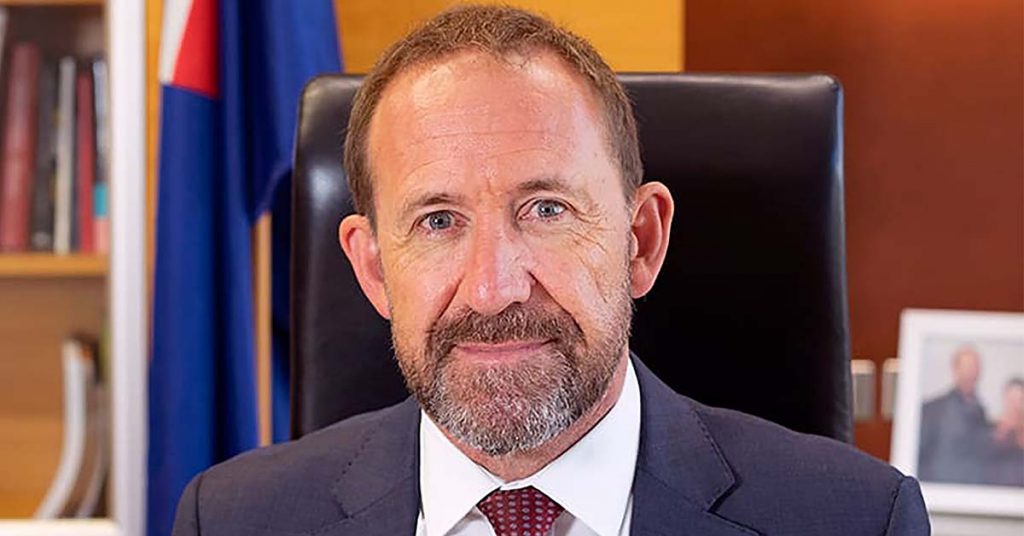
“News reports this morning are deeply concerning,” NZ International Business Forum executive director Stephen Jacobi said.
“There are always trade risks when NZ expresses concerns about Chinese policy, but potential threats to national security cannot be ignored.
“Hopefully this can be managed in the careful and diplomatic way which characterises NZ’s approach to China generally.”
Last night, NZ joined a multinational censure of China’s links to cyber attacks. This censure included not only its Five Eyes partners – the US, UK, Australia and Canada – but also the European Union, Japan and the 30-nation North Atlantic Treaty Organisation alliance.
Government Communications Security Bureau Minister Andrew Little says the intelligence agency confirmed Chinese state-sponsored actors were behind the exploitation of Microsoft Exchange vulnerabilities in NZ earlier this year.
“The GCSB has worked through a robust technical attribution process in relation to this activity. New Zealand is today joining other countries in strongly condemning this malicious activity undertaken by the Chinese Ministry of State Security (MSS) – both in New Zealand and globally,” the statement said.
Meat Industry Association (MIA) chief executive Sirma Karapeeva is also hoping diplomacy wins out.
“We need to put it in the context of New Zealand’s independent foreign policy and the fact that New Zealand takes a consistent and predictable approach to its relationship with China,” Karapeeva said.
The MIA is watching developments closely and “we hope that the mature and strong foundations between New Zealand and China will allow our two governments to manage any differences effectively without it flowing over into other areas of the multifaceted relationship,” she said.
NZ’s growing dependence on China’s hunger for its products puts the nation in a tough spot.
In the 12 months ended May, China took 30.6% of NZ’s exports, while Australia was the next largest with just 13.2%.
“The announcement will add to US-China and Australia-China geopolitical tensions, and with NZ being a signatory to the accusations there must be a non-negative risk that NZ’s trade with China eventually faces some hurdles,” BNZ senior markets strategist Jason Wong said.
Australian exports – outside of wool and iron ore – have felt the sting of China’s wrath.
“I think we all know our vulnerability, given China is NZ’s largest export destination by far,” he said.
Former diplomat Charles Finny says NZ is in good company.
“The Prime Minister and Minister Nanaia Mahuta have made it clear there will be issues on which New Zealand will have differences with China and that sometimes we will publicly express these differences,” Finny said.
“If there is indeed evidence of China targeting New Zealand in this way we are right to complain and China should not be surprised by this.
“Maybe, if we were the only country to say something there might be a risk of retaliation. In this case we are in very good company.”
Westpac Bank senior agri economist Nathan Penny also said “the important question is whether or not New Zealand is acting unilaterally.”
Given NZ isn’t alone, Penny doesn’t expect China to single out NZ for retaliation via trade.
China infant formula market expert Jane Li also doesn’t expect much reaction from China.
“They understand that it is part of NZ’s duty to stand with its allies on certain issues. Our relationship is more than mature enough that it will not affect trade,” Li said.
“Beijing is too used to criticism and this statement is not causing material harm so I don’t see why there would be retaliation beyond similarly strong words.”
A spokesperson for China’s embassy in Wellington said the accusations are “totally groundless and irresponsible” and that it lodged a “solemn representation” to the NZ government.
NZ’s Ministry of Foreign Affairs and Trade, however, didn’t mince words.
Public statements condemning malicious cyber activity are an important element of NZ’s toolkit to both respond to and deter such behaviour by other states, a spokesperson said.
“Whether and how China responds is for it to decide, but no one in New Zealand would want to feel that our economic relationship constrains us from exercising our independent foreign policy.”
BusinessDesk
























